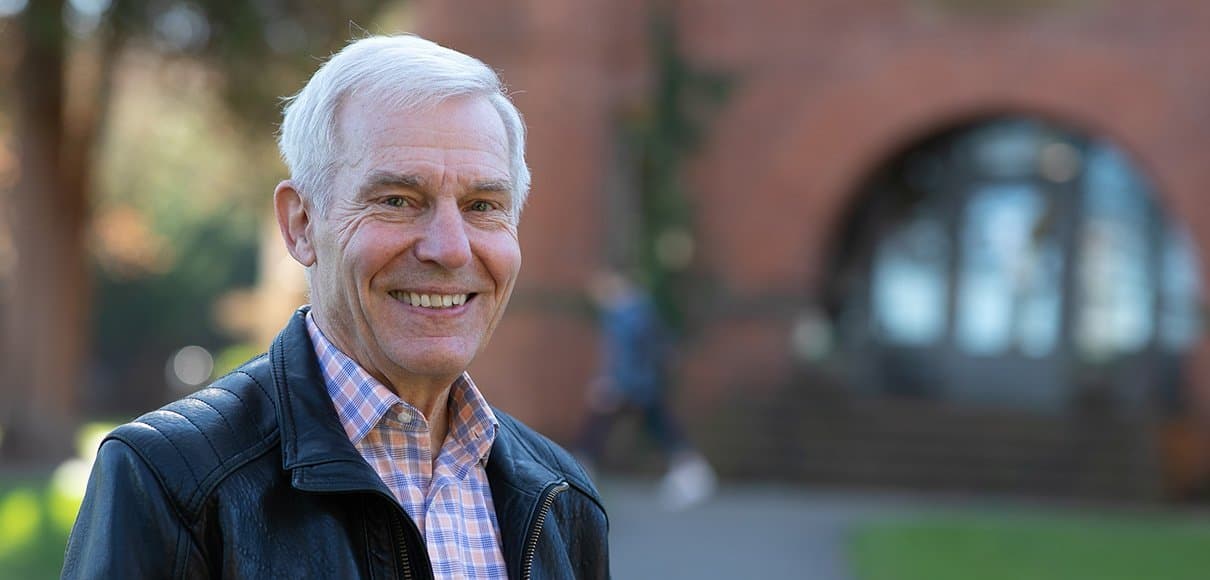WHEN BOB DROVDAHL ’71 was a ninth grader in Spokane, Washington, he traveled to Seattle with his best friend to visit his friend’s older brother at SPC. The campus made an impression on the young teen. Drovdahl later applied to Seattle Pacific for college and graduated with a psychology degree.
This year, Drovdahl, professor of educational ministry, retired after serving SPU students and colleagues for 44 years — not all in the School of Theology.
“I was first hired as director of SPU’s Camp Casey,” remembered Drovdahl, who, by 1978 had a master’s from Wheaton Graduate School and was working on a doctorate from Michigan State University. “We were at Casey four years and, in 1982, I was offered a full-time faculty position.”
Drovdahl didn’t consider the move from Camp Casey to the SPU campus as a big shift. “It was a different way of continuing my work with college students during a transformative period in their young adult lives,” he said.
That calling to work with young adults guided his career. “We tend to think of our calling is being in the right place,” he explained. “But the Apostle Paul puts more attention on having the right perspective. Everyone has a ministry, and that ministry can be lived out in any place.”
Over the years, Drovdahl taught students in courses such as Human Development and Christian Faith and Leadership in Ministry. His academic writings focused on integrating faith and learning, and on practicing holiness. In his last year at SPU, he looked forward to his final opportunity to teach University Foundations 1000: The Christian Faith, a course taken predominantly by new and transfer students.
“Bob lives out Paul’s words in Romans 12 every day, including living in harmony with all,” said Richard Steele, professor of moral and historical theology. “I have never met anyone who puts these words into daily practice more faithfully than Bob Drovdahl.”
In retirement, Drovdahl plans to refocus his calling: He and his wife, JOY DEWEESE DROVDAHL ’71, will remain in the Seattle area, where they can support and encourage their grown son’s and daughter’s families, including five grandchildren, ages pre-tween to 20s.




